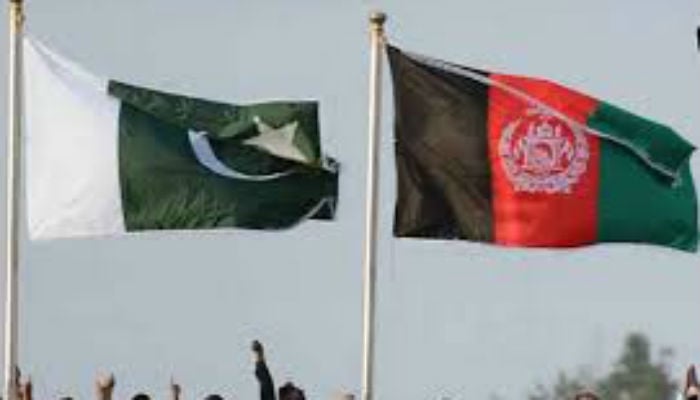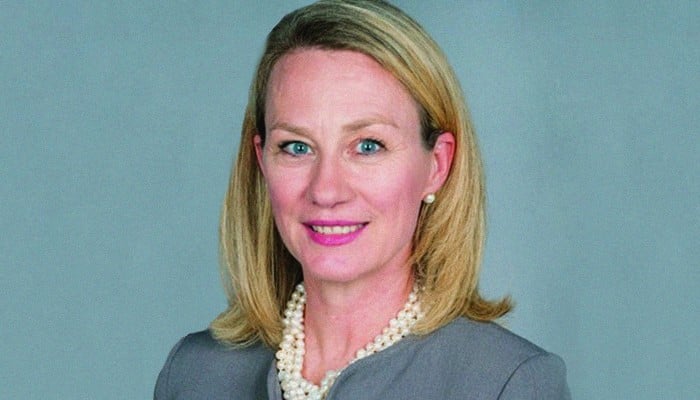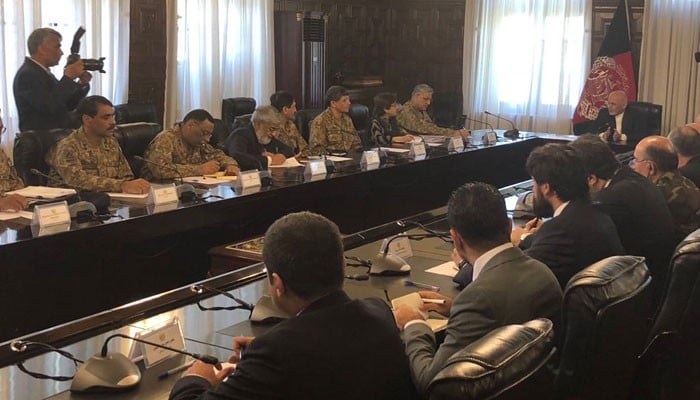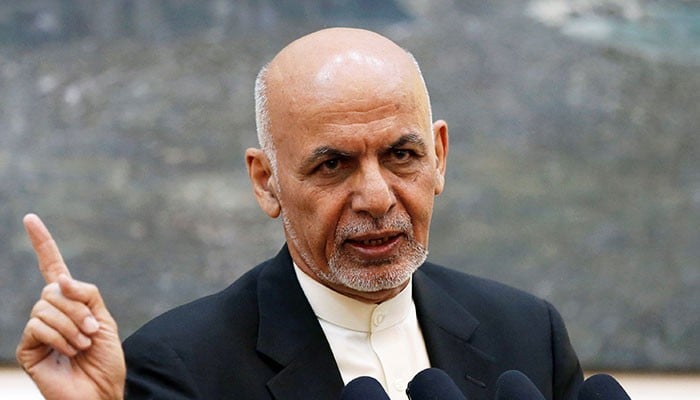Pakistan, Afghanistan agree to counter terrorism in inaugural APAPPS meeting
July 22, 2018

ISLAMABAD: The inaugural session of the Afghanistan-Pakistan Action Plan for Peace and Solidarity (APAPPS) was held in Kabul today (Sunday), according to Ministry of Foreign Affairs Spokesperson Dr Mohammad Faisal.
Foreign Secretary Tehmina Janjua headed the 28-member delegation of Pakistan during the session.
The delegation included representatives of foreign and interior ministries, commerce, Federal Board of Revenue, railway, communications, among other ambassadors.
Personnel of intelligence agencies and Pakistan Armed Forces were also part of the delegation.
Afghan deputy foreign ministry Hekmat Khalil Karzai led the Afghanistan delegation.
The action plan provides the forum to the neighbouring countries to hold a dialogue on an institutional level, the foreign office said, adding that five working groups have been formed under the APAPPS.
The representatives of the two countries held an in-depth discussion on ways to counterterrorism during the meeting.
Other issues such as regional security and the return of Afghan refugees was also discussed.
Earlier in the day, Janjua had arrived in Kabul with a 28-member delegation for the inaugural session of the APAPPS.
According to Foreign Office (FO) Spokesperson Dr Mohammad Faisal, the foreign secretary, in her opening remarks to the media, said that their presence in Kabul today with just two days in Pakistan's general elections "shows our commitment to APAPPS".
A few days ago, US Central Command chief General Joseph Votel said the US continues to work closely with Pakistan to help the country fulfil its role in accomplishing a durable political settlement in Afghanistan.
APAPPS
The APAPPS is a bilateral framework aimed at improving cooperation and coordination between the two neighbours and reducing hostility by employing working groups on both sides.
Last month, senior US State Department official Ambassador Alice Wells said in the US House Foreign Affairs Committee that the US government has given its full support to APAPPS.
"For example, with US support, Pakistan and Afghanistan entered into a constructive dialogue to develop," she had said in her statement.
Similarly, during a visit to Kabul last month, Pakistan Chief of Army Staff General Qamar Javed Bajwa had said that the recently-agreed APAPPS is expected to bring more cooperation and coordination between the two countries.
In April this year, after a visit to Kabul by then-prime minister Shahid Khaqan Abbasi, the FO had stated that Pakistan and Afghanistan agreed on seven key principles to operationalise the working groups under APAPPS.
Both Islamabad and Kabul agreed to avoid public blame game and instead use APAPPS cooperation mechanisms to respond to mutual issues of contention and concerns.
They will establish working groups and necessary cooperation mechanism as per APAPPS for full implementation of the APAPPS and mutually reinforcing principles, the statement added.
Last week, Afghan President Ashraf Ghani once again invited the Taliban for peace talks, saying that the upcoming elections in October are a good opportunity for them and the nation to end the conflict.
The offer followed an Eid truce — the first of its kind — between the Afghan forces and Taliban last month which saw unarmed Taliban fighters mingling with soldiers, police, and civilians across the country.















